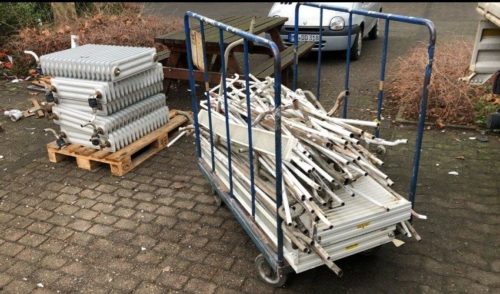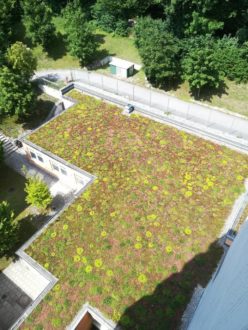European Parliament decides to tighten CO2 limits for heavy commercial vehicles
According to today’s decision, commercial vehicle manufacturers will be obliged to reduce the average CO2 emissions of heavy commercial vehicles by 45 % by 2030, 65 % by 2035 and 90 % by 2040. The UFOP particularly welcomes the technological aspect of the decision, because Germany, as one of the leading international locations for the development of engines for commercial vehicles, should not be allowed to withdraw from this important market. Otherwise, this development will take place as a politically desired relocation to other regions of the world. Irrespective of EU policy, combustion engines are also being further developed for the use of alternative fuels, emphasises the association. Politicians must keep an eye on these future markets outside the EU. UFOP recalls the successful initiative by Indian Prime Minister Modi to establish the Global Biofuel Alliance at the G20 summit in early September 2023. Only Italy is a member from the EU. The German government had been involved in the preparatory talks. Nevertheless, Germany had not joined this alliance. UFOP is calling for this to be corrected as a matter of urgency.
UFOP is taking the European Parliament’s decision as an opportunity to scrutinise the recurring discussion about the use of sustainably certified biofuels from cultivated biomass. UFOP clarifies that the Renewable Energy Directive (2018/2001/EU) and the current amendments (RED III) have created the basis for a reliable long-term framework. This applies in particular to the regulations on the continuation of the cap on biofuels from cultivated biomass and from waste, as well as the stipulation that biofuels from palm oil can no longer be counted towards quota obligations in all member states from 2030 at the latest. Many member states have already enshrined this exclusion in law, including Germany with the quota year 2023. Whether soya oil will also be excluded from use is currently being examined by the EU Commission. Even if the soya plant is labelled as an oil plant, the oil content of soya beans is 20 % on average, compared to 42 % for rapeseed grown in Europe.
The Union for the Promotion of Oil and Protein Plants e. V. (UFOP) represents the political interests of companies, associations and institutions involved in the production, processing and marketing of domestic oil and protein plants in national and international bodies. UFOP supports research to optimise agricultural production and for the development of new recycling opportunities in the food, non-food and feed sectors. UFOP public relations aim to promote the marketing of domestic oil and protein plant end products.
UFOP – Union zur Förderung von Oel- und Proteinpflanzen e.V.
Claire-Waldoff-Str. 7
10117 Berlin
Telefon: +49 (30) 2359799-40
Telefax: +49 (30) 2359799-99
http://www.ufop.de
Union zur Förderung von Oel- und Proteinpflanzen e
Telefon: +49 (30) 31904-434
Fax: +49 (30) 31904-485
E-Mail: m.leonhard@ufop.de
![]()





